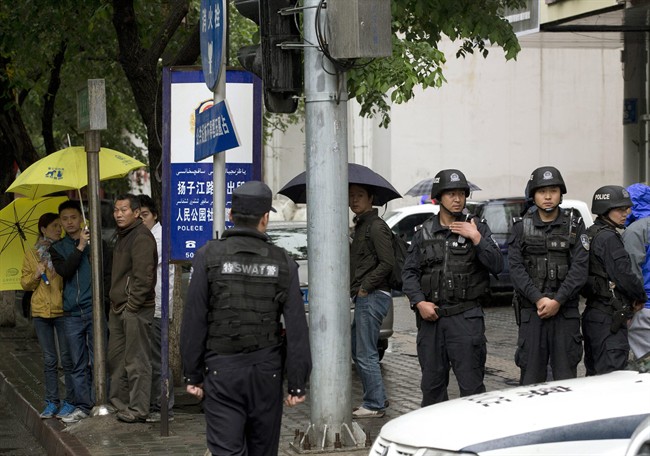BEIJING – Chinese authorities are offering up to 300,000 yuan ($50,000) for tips on terrorism activities in the Himalayan region of Tibet, the official Xinhua News Agency said Saturday.

China’s recent efforts to fight terrorism has largely involved the neighbouring region of Xinjiang, where violent attacks blamed on Muslim separatists have left hundreds of people dead in the past two years.
READ MORE: How does Canada’s intelligence oversight compare to other countries?
There has been little public knowledge of terrorism in recent years in Tibet, although more than 130 Tibetan Buddhist monks and laypeople have set themselves on fire since 2009 in protest of Beijing’s strict controls over the region and their religion, according to overseas international human rights groups. The protesters also have called for the return of their spiritual leader, the Dalai Lama, whom Beijing believes to be intent on splitting Tibet from China, a charge he denies.
Xinhua said the new rules by the Tibetan Autonomous Region’s police department encourage member of the public to report any suspected terror activity, such as plotting attacks, promoting religious extremism, and transporting controlled weapons, for cash rewards.
It’s unclear from the new rules if Chinese authorities are treating self-immolation as a form of terrorism or if violence inside Tibet has escalated. With journalists’ access to Tibet tightly restricted, all information from the region is extremely difficult to confirm. Occasionally, there have been unconfirmed reports of clashes between state security and unarmed Tibetan demonstrators.
Earlier this week, Chinese investigators announced findings that 15 Communist Party officials in Tibet joined underground Tibetan independence organizations, provided intelligence to the Dalai Lama and his supporters, or participated in activities deemed harmful to China’s security.
The report was highly unusual and suggested continuing unrest in Tibet, which has had a heavy security presence since a wave of riots and protests against Chinese rule in 2008.
A discipline investigator, Ye Dongsong, was quoted in state media as saying that the Tibetan regional government should focus on neutralizing separatists and maintaining social stability.
- Cars torched, explosions heard in suspected arson in Montreal neighbourhood
- Gas station clerk stabbed several times during violent attack at Ultramar in Montreal
- Man acquitted in Tina Fontaine murder found dead, says her aunt
- Canadians should expect politicians to support right to bail, Virani’s office says



Comments